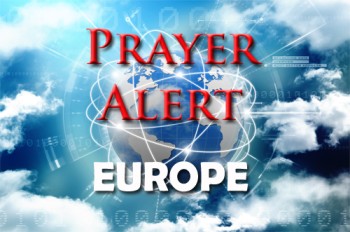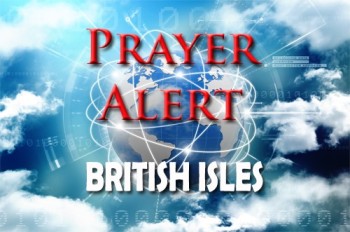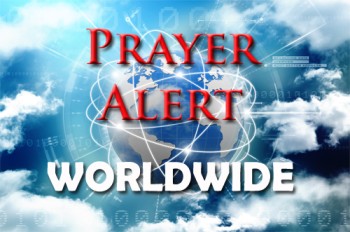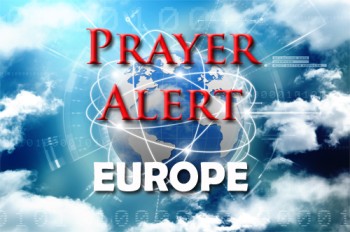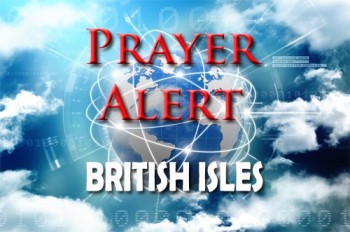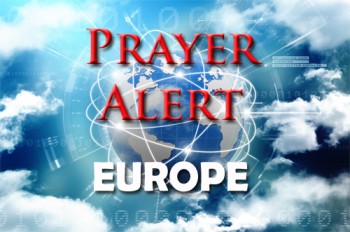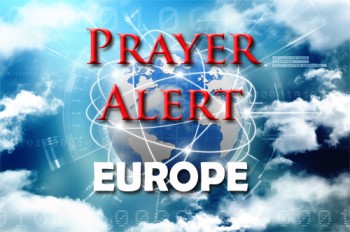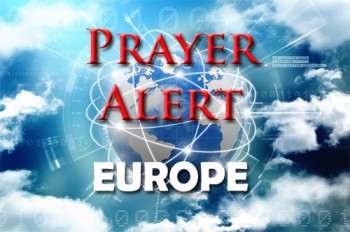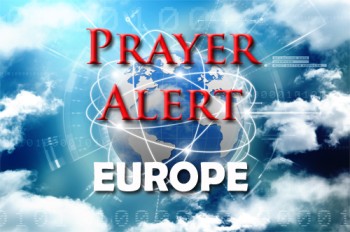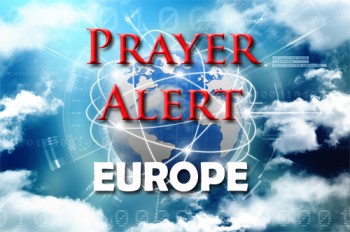Displaying items by tag: Russia
European shuttle diplomacy
On 7 February President Macron travelled to Moscow and then to Kyiv, to meet the presidents of Russia and Ukraine and seek a diplomatic solution to the crisis. At the same time, German chancellor Olaf Scholz was in Washington aiming to convince Joe Biden to trust him despite being wishy-washy on Russia. On 10 February Boris Johnson went to Brussels. In the week beginning 14 February, Scholz will meet Vladimir Putin himself. Despite Scholz’s doveish approach to Russia threatening European unity, France, Germany, and the US are still allies. Many believe the scenario of Macron keeping Scholz and Biden out of the loop on his talks with Putin and Zelensky is as unlikely as the German chancellor cutting a deal with Biden behind Macron’s back.
UK 'not optimistic' Russian invasion can be stopped
Defence secretary Ben Wallace will soon be travelling to Moscow to meet Russia's defence minister, but he is lowering expectations of a diplomatic breakthrough. He says there is a chance a Russian invasion could be stopped, but he’s ‘not optimistic’. The UK's response to Russia's military buildup has been more muscular than most. They have supplied Ukraine with 2,000 light anti-tank weapons and troops to help train them. But not all NATO allies are willing to do the same. Germany's new government warned ‘supplying Ukraine with weapons could escalate the conflict’. Instead, Berlin is supplying Ukraine with ‘non-lethal’ field hospitals and 5,000 military helmets. Poland and Latvia have publicly criticised Germany's stance. Wallace hopes that Germany will support tough economic sanctions. After meeting NATO’s secretary general, Mr Wallace said the UK could support NATO by ‘increasing forces on land, sea or air to deter any further Russian aggression’, and could send Ukraine more weapons.
USA / Russia / Ukraine: tensions and threats
Joe Biden said there would be ‘enormous consequences’ globally if Russia invaded Ukraine and threatened personal sanctions on Putin if he does. His comments came as other Western leaders warned Russia would pay a heavy price for an invasion. The UK said it had ruled nothing out, including sanctions on people, banks and businesses. It wants all its allies to do the same, as collective action would deter Russia. Biden also said Europe must match America’s sweeping sanctions. However, Europe imports 45% of its gas from Russia, and Putin has used gas for geopolitical leverage before. Also, Ukraine is not a NATO member, so NATO has no obligation to defend it. Putin objects to Ukraine joining NATO as he wants to have more power there. Invasion is hard to imagine, but so is the prospect of Putin backing off without major concessions from NATO. Recently Russian, Ukrainian, German and French diplomats gathered for talks.
Europe: UK sending weapons to help defend Ukraine
Conflict between Russian-backed separatists in eastern Ukraine and the Ukrainian military has continued since 2014, with a shaky ceasefire in place. Western and Ukrainian intelligence suggest an invasion or incursion could happen sometime in early 2022. In December Russia amassed 100,000 troops on the border - so Ukrainian army reservists took part in exercises. On 18 January defence secretary Ben Wallace told MPs the UK is supplying Ukraine with short-range anti-tank missiles for self-defence, with a small team of British troops to provide training. He said there was ‘legitimate and real cause for concern’ that the Russian troops could be there for an invasion. Dozens of British troops have been in Ukraine since 2015 to train the armed forces, and the UK has also committed to help rebuild Ukraine's navy following Russia's 2014 invasion of Crimea. Now the UK will provide extra help with security in the light of Russia's ‘increasingly threatening behaviour’.
MPs re-examine UK response to Russian dirty money
Tom Tugendhat will chair a foreign affairs select committee to look into the Government’s apparent inability to crack down on money-laundering. Russian oligarchs’ use of London to launder their fortunes will come under renewed scrutiny. The Foreign Office is often accused of leaving a gap between its tough anti-Russian rhetoric and failure to control either money-laundering or those in the UK who enable the corruption. Foreigh secretary Liz Truss says the UK has some of the toughest anti-corruption laws in the world, but even in her short period in office she has been repeatedly challenged to review whether the laws are working effectively or adequately policed. The inquiry will follow up a previous investigation which found gaps in government anti-corruption armoury, warning, ‘Turning a blind eye to London’s role in hiding the proceeds of Kremlin-connected corruption risks signalling that the UK is not serious about confronting the full spectrum of Putin’s offensive measures.’
Ukraine: discussions to defuse tensions
Officials from Russia and the United States have been holding security talks in Geneva, in a week of diplomatic activity to defuse tensions over Ukraine. Russian deputy foreign minister Sergei Ryabkov and his delegation have begun face-to-face discussions with Wendy Sherman, the US deputy secretary of state, and her team. Ms Sherman is one of the world's most powerful diplomats, nicknamed the Silver Fox because of her snowy white mane and canny deal-making style. Pray that their meetings will kickstart dialogue between Moscow and Washington, whose relations are at a low point over Russia’s military buildup near Ukraine. The negotiations have been particularly gruelling, say analysts, and Ms Sherman will need all the diplomatic tricks she can muster to avoid a major war in Europe. Sergei Ryabkov brings a list of demands the US officials must agree to, including not expanding NATO forces eastward or allowing Ukraine to join NATO. See also the next article and
Russia: crackdown on ‘dissidents’
Russia declared Nadezhda Tolokonnikova (a member of the Pussy Riot band) and prominent satirist Viktor Shenderovich ‘foreign agents’ as authorities press ahead with a crackdown on dissent. The justice ministry also added to its list of ‘foreign agents’ journalist Taisiya Bekbulatova and art collector Marat Gelman. ‘These people systematically distribute materials to an indefinite circle of persons, while receiving foreign funds.’ the government said in a statement. Shenderovich is a prominent anti-Kremlin satirist and political observer. Anyone identified as a ‘foreign agent’ must disclose sources of funding and accompany all texts, videos and social media posts with a caption mentioning content from a ‘foreign agent’: this is reminiscent of the Soviet-era term ‘enemy of the people’. Independent media outlets including Rain TV and a popular Russian-language website have also been branded as foreign agents. Russia claims that there is increased interference from abroad, meddling in Russian affairs.
Russia: Ukraine conflict
Ukraine reported over 90,000 Russian troops and tanks being moved to the border, inside Ukraine’s territory, causing western powers concerns. On 7 December Vladimir Putin spoke via a video link with Joe Biden, who called for a de-escalation of tensions. Hours before the video talks, Washington was not planning to make a military response, but to use tough economic sanctions. However, by 8 December it said it was preparing strong economic and ‘other measures’ over fears of a Russian invasion. Mr. Biden and leaders of the UK, France, Germany and Italy agreed to use ‘all the tools at their disposal’. National security adviser Jake Sullivan said the Biden administration was preparing specific robust responses in the weeks ahead ‘if they were required’. Moscow denies it has plans to attack. See
Russian preparations to attack Ukraine?
Russia has over 92,000 troops massed around Ukraine’s borders and is preparing for an attack by the end of January or beginning of February, said the head of Ukraine’s defense intelligence agency, Brig Gen Kyrylo Budanov. He said that an attack would likely involve airstrikes, artillery and armour attacks followed by airborne assaults in the east, amphibious assaults in Odessa and Mariupul, and a smaller incursion through neighboring Belarus. Russia’s large-scale Zapad 21 military exercise earlier this year proved they can drop more than 3,500 airborne and special operations troops at once. America’s defence secretary Lloyd Austin said, ‘The USA continues to see troubling Russian behaviour. We are not sure what Mr Putin is up to, but these movements certainly have our attention. I would urge Russia to be more transparent, and to take steps to live up to the Minsk agreements. Our support for Ukraine sovereignty and territorial integrity remains unwavering.’
Moldova: severe energy crisis
Moldova has made history by buying gas from a source that was not Russia's Gazprom. The one million cubic metres came from Poland's PGNiG. Moldova will need much larger volumes if Russia cuts supplies, as it has threatened to do if they don’t agree to increased costs in a new contract. In the absence of a new deal Russia reduced supplies, prompting Moldova to declare a thirty-day state of emergency. Gazprom accused Moldova of ‘provoking a crisis’ and demanded repayment of a $709m (£514m) debt, which Moldova disputes. Officials say they would like to sign a new contract with Gazprom, but only if the terms are favourable. Negotiations continue. Moldova said PGNiG’s shipment was to test the ability of imported gas from alternative sources, and PGNiG was one of seven offers they had received. Critics accuse the Kremlin of hiking gas prices to punish Moldova for electing a pro-European president, Maia Sandu.
